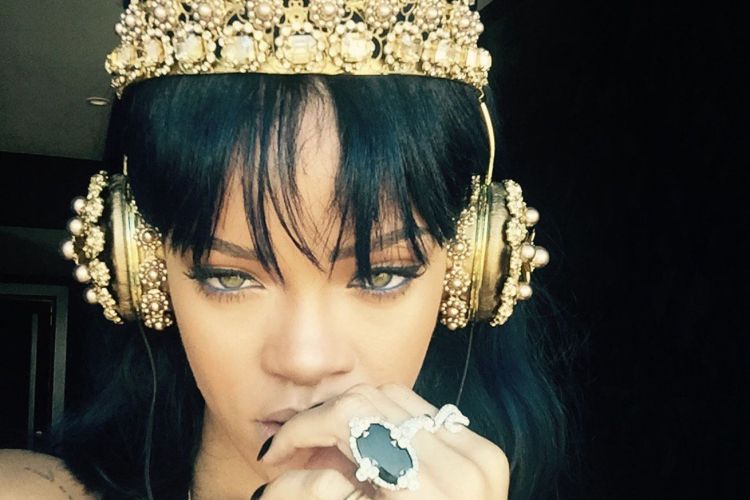Words by Jesse Serwer
Rihanna this morning leaked her new single “Work” — listen to it here on Tidal — prompting the expected rush of reviews, social media quips and other summations of of the much-anticipated Drake collaboration.
Dancehall listeners have noted the similarities between producer Boi-1da’s beat and Richie Stephens’ Sail Away riddim, which spawned the Beenie Man and Mr. Vegas collaboration “Badman Nuh Flee” and Sean Paul’s “Fit and Legit” in 1998.
That “Work” bears an undeniable resemblance to a mid-level, late-’90s dancehall instrumental is not something one could have predicted, yet it is not surprising. We were already anticipating a dancehall influence on Rihanna’s upcoming album, Anti (which is reportedly about to drop this week, too). It’s no secret that the Bajan singer’s team has been soliciting input from dancehall producers and artists in Jamaica. Not that she can’t find the links between pop and dancehall herself. A soca-loving daughter of Barbados who knows how to do the Puppy Tail dance, Rihanna is better versed in Caribbean music and culture than any other pop star (including Nicki Minaj) and, likely, anyone on her production and management teams. (She probably knows the words to this one, too.)
“Work” producer and long-time Drake collaborator Boi-1da is himself a product of Kingston. (Though he only lived there til age three, and has said he’s never been back). He’s been adding dancehall influences into his sound more recently, having last year produced Kendrick Lamar’s “The Blacker The Berry,” the To Pimp A Butterfly single which featured an unexpected cameo from dancehall star Assassin.
However, the similarities between “Work” and Sail Away (which itself was based on a melody from Alexander O’Neal’s “If You Were Hear Tonight”) —as well as the patois (“yuhzeeme”) and Caribbean intonation sprinkled throughout the song by both Rihanna and dancehall super-fan Drake (who slyly drops the term forward into his verse) — are likely lost on most who heard “Work” this morning, including music experts. Write-ups on the track, such as this one in Rolling Stone, have more often identified the song with terms like “tropical house-flavored.”
For those not up on genre fusion trends used primarily by music writers and DJs, tropical house is a fairly new term coined recently to describe an emerging sound in European dance music, most notably that of Felix Jaehn, the German DJ whose remix of OMI’s “Cheerleader” occupied the No. 1 spot on the Billboard Hot 100 for most of last summer. More recently, it’s been applied to Justin Bieber’s “Sorry,” a song whose use of the dembow drum pattern (which originates, and takes its name, from Shabba Ranks’ Bobby Digital-produced 1990 dancehall track “Dem Bow,” the foundation for reggaeton and its more raw, Dominican cousin, dembow) fits it neatly into any dancehall, groovy soca or reggaeton set.
According to this GQ article on tropical house, the genre “started off as a kind of a joke” before becoming a commonplace term to describe house music with a summer-y vibe — though, problematically, the article mentions the words Caribbean or reggae.
Is “Work” tropical house? Who cares. No one (including Rihanna herself) will know what that means in a year or two from now —any music style that starts out “as a joke” can’t be expected to have a long shelf life. However, “Work” —which falls short of other dancehall-inspired tracks from Rihanna like “Rude Boy” and “Man Down” but manages to be an enjoyable listen nonetheless — will probably still be playing then. And, since Rihanna’s clear overtures to dancehall and Caribbean culture seem to be lost on so many, it’s necessary to state in clear terms that “Work” is clearly a dancehall-inspired work, if not a dancehall track in the purest sense.
Yuhzeeme?

